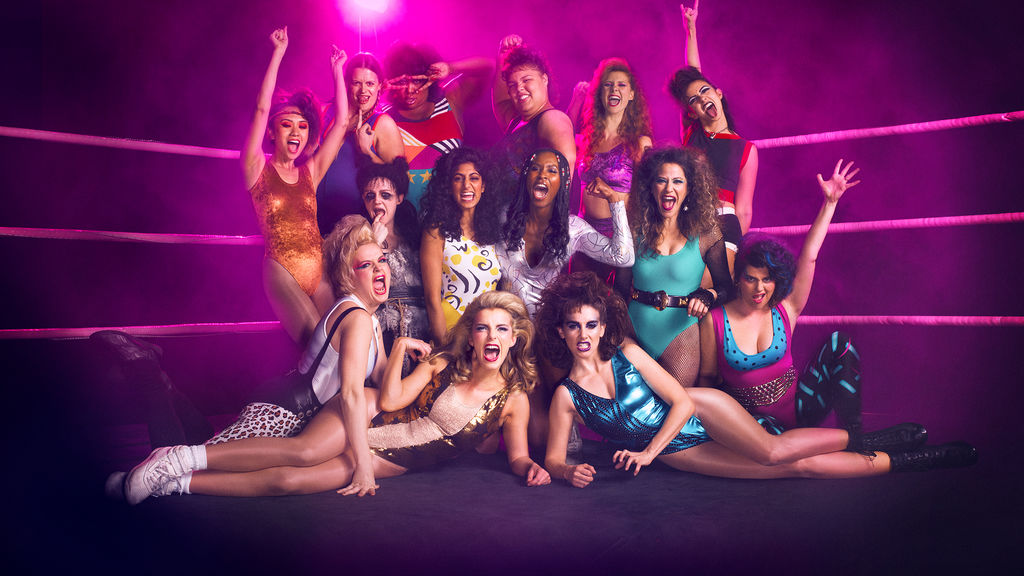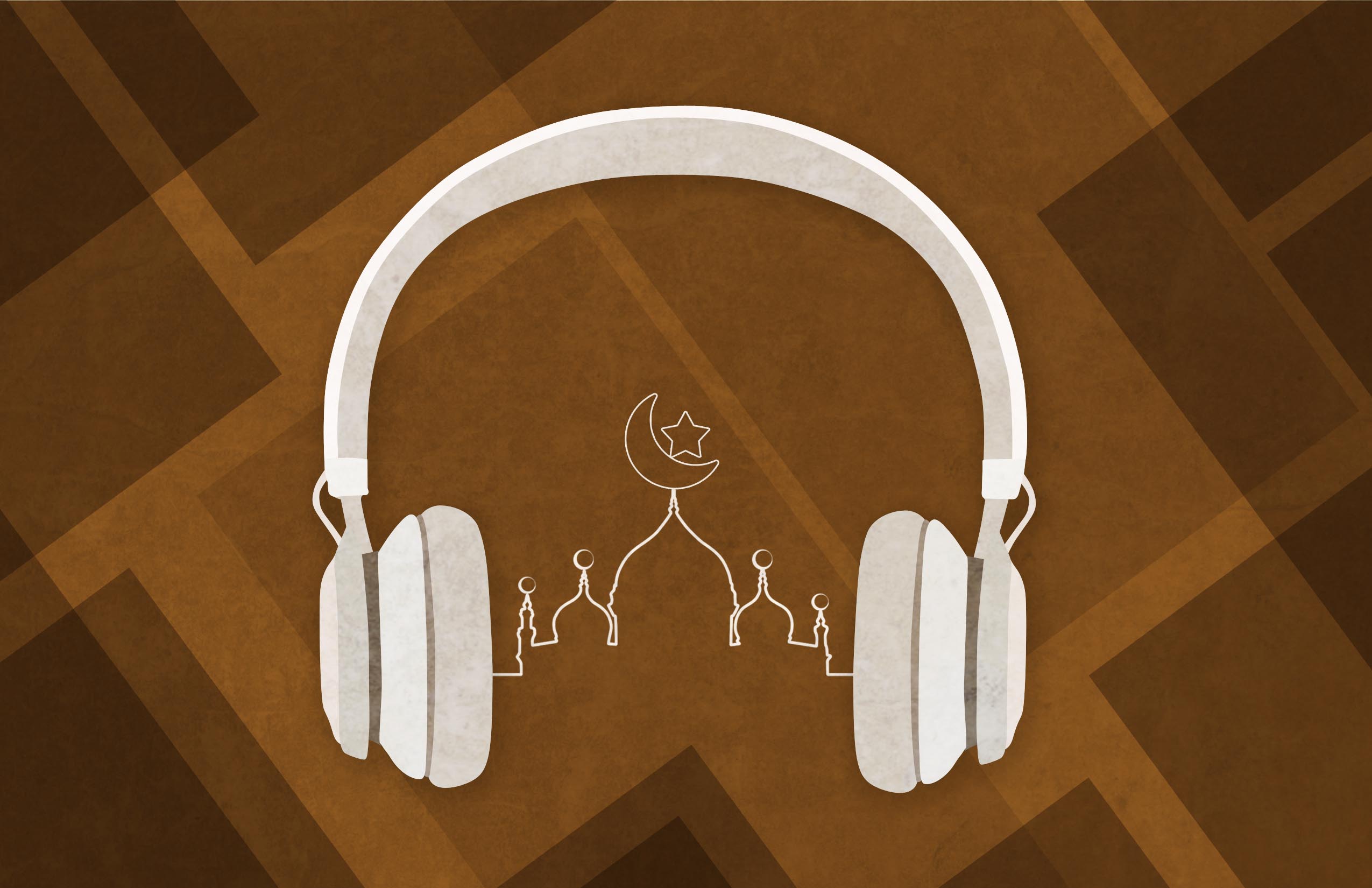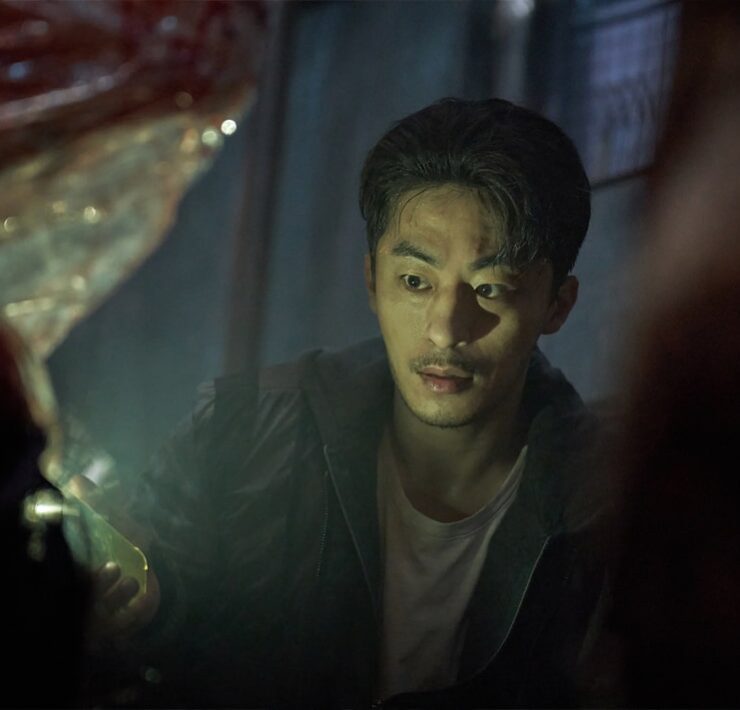Must-binge: Why a show about ’80s ladies wrestling is worth cancelling your plans for the day

The hair, the leotards, the leg warmers, the Jazzercise routines. We may not have earthly memories of these cultural landmarks, but they’ve certainly been immortalized in many a music video, film, TV show, and even photograph of our folks from way back when, that we easily recognize them as souvenirs from that crazy decade, the ’80s.
You can now add “syndicated women’s professional wrestling” to your cache of ’80s references. Created by Liz Flahive and Carly Mensch, Netflix’s GLOW is a comedy-drama about a group of “unconventional” women–meaning women of different shapes, sizes, ethnicities, and personalities–who find themselves hired to be the cast of the world’s first women’s professional wrestling TV show.

It’s a great premise in itself, especially given how professional wrestling was such a big part of so many generations’ childhoods: Hulk Hogan (long before we learned what a mess he really is), The Undertaker, Ravishing Rick Rude (RIP)…
This time, though, it’s all about the Gorgeous Ladies of Wrestling (GLOW), a real-life promotion that started as a novelty act in 1986 then grew to a TV show that ran for four seasons until 1989. It’s what this GLOW is based on, and we can only ask why it took three decades for this story to be creatively re-told.
So why, exactly, are we suggesting that you spend a whole afternoon bingeing on GLOW?
1. It’s a classic story about the misfits and the underdogs.
Ruth (Alison Brie) is an actress who is very far from catching her Hollywood break. After yet another failed audition for a secretary role, she gets a call from a casting agent about an upcoming project that is looking for the aforementioned “unconventional women.” At the casting call, she meets a variety of female characters, all of whom also can’t seem to fit into the mold of what they’re supposed to be. There’s Carmen (Britney Young), an introvert who comes from a family of professional wrestlers; Sheila (Gayle Rankin), who identifies as a she-wolf; Cherry (Sydelle Noel), a B-movie/stunt actress who’s also a no-bullshit matriarchal type; and more. Aside from being outsiders, what they all have in common is their dedication to this dubious project where they play-act at fighting with each other inside the ring. The way they see it, if the outside world won’t accept them, then they’ll sure as hell throw everything they have into something where they are. [Cue Pat Benatar music.]
2. It’s not preoccupied with presenting perfect characters.
Everyone here has their issues and back stories. Take Ruth: she can make viewers feel bad for her, like when the taco that was supposed to be her lunch and dinner gets snatched by a bunch of teenagers. Then she loses sympathy points when it’s revealed that she has slept with her best friend’s husband. She can also be too studied and needy, but no one can accuse her of not working hard enough. As for Sam (Marc Maron), the budget horror film director who was hired to helm this new women’s wrestling show, he’s a sad, lonely, and cranky addict and alcoholic. But as exploitative of women as his new project is, he’s also strangely protective of the group he calls “actors” (even though only a couple of them have had acting experience). GLOW isn’t about tallying each character’s good and bad points and determining the collective sum. A viewer may have their favorites, but there’s effort in portraying characters that are realistically complex. Maybe having Jenji Kohan as one of the show’s executive producers helps a lot with that, since she knows a thing or two about presenting complex female characters.

3. It’s self-aware.
Because it’s set in the ’80s, GLOW also portrays the lack of political correctness during the Reagan era. To create as much hype as possible, the women were given stereotypical characters to match how they look. Tammé (professional wrestler Kia Stevens) is given the persona The Welfare Queen, a reflection of the perception of black women as lazy types who rely on government dole-outs–never mind that she is actually able to send her son to Stanford. (Welfare in the US was originally created to help out poor white women, but somehow, that got twisted.) Jenny (Ellen Wong) is a Cambodian immigrant who gets the character Fortune Cookie, a straw hat-wearing, samurai-wielding woman who’s shy/submissive yet also an expert on martial arts–a wealth of muddled up Asian characteristics. Then there’s the Indian-American Arthie (Sunita Mani) who is re-christened as Beirut, a Lebanese terrorist character that is obviously meant to play into the ’80s paranoia of anything Middle East-related. Because the women need this racket for one reason or another, they gamely put on the costumes and the characterizations. Outside the ring, though, they call out the ridiculous ideas that Sam and rich-boy producer Bash (Chris Lowell) have foisted on them.
4. It’s really good entertainment.
Professional wrestling, with its scripted lines and choreographed moves, is inherently campy. Mix it with the ’80s and it takes on a–pardon the pun–glow of nuclear proportions. The costumes, the hairstyles, the sound cues–they all make the decade that people either love or hate to bits seem really fun, just by switching the excess of the ’80s to 11. There’s also the strong writing and impressive acting, but with these, you just have to dive into the series yourselves to enjoy them.

5. At its heart, it’s a funny and touching story about the difficult journey towards self-acceptance.
Like we’ve said, no one here is perfect–not even pretty, blonde Debbie (Betty Gilpin), Ruth’s former best friend, a former soap star, and a new mother. Getting into professional wrestling initially seems like a band-aid solution to her dissolving marriage and the boredom she feels with life out of the limelight, but while her looks worked well in the soap world, they’re not quite the hot currency in professional wrestling. Debbie then learns to loosen up and lose her preconceived ideas of perfection, all while dealing with having Ruth as a co-star inside the wrestling ring. Putting on a persona sounds fun until it becomes your means to make a living. What GLOW seems to teach us is that to play a convincing character, we have to know first who we really are–and be okay with it. After all, that’s the primary role we play every single day.
GLOW is now available for streaming on Netflix.
Images from Netflix.
Save
Save
Save
Save
Save















